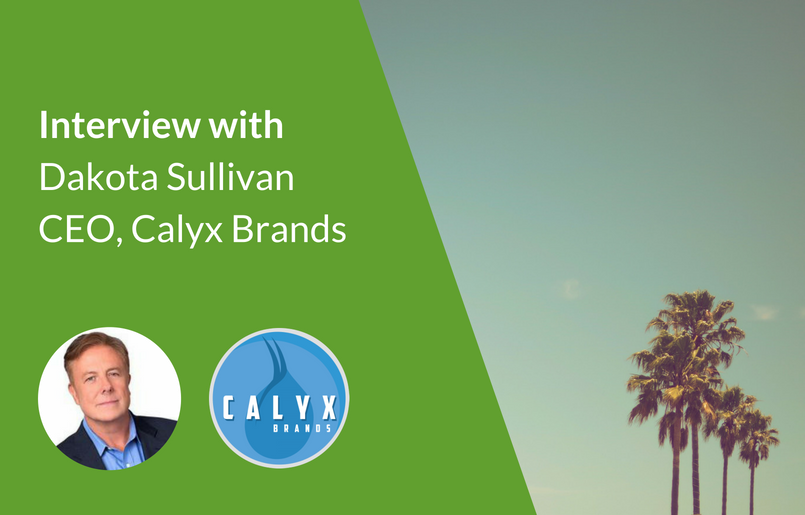
Calyx Brands exceeded 1 million dollars in Sales! Interview with CEO, Dakota Sullivan
This week, the Plexus Media team had a chance to talk to Dakota Sullivan, CEO of Calyx Brands.
Thank you for carving out this time for me, and congratulations on the best sales month so far for Calyx Brands. I understand your revenues were record-breaking for your company, exceeding 1 million in April!
How do you see Nutritional High supporting your vision in increasing revenue and reach in California and beyond?
Well, the rationale for the acquisition of Calyx by Nutritional High is that Nutritional High intends to be a house of brands owning multiple brands across multiple categories, and all those brands of products will need to be distributed. So Calyx is designed to be almost utility for the brands that Nutritional High acquires, enabling them to get into the maximum number of retail locations and to sell the most products that they can, and our long-term intention is to be in California and in other states where Nutritional High has a presence.
What makes Calyx stand out from other distribution companies in California?
Retailers look for the same thing really, which is the scope of service or service for brands, as well as the reliability of service.
So I think what has made us successful is that we work very hard to make sure that we’re representing the products that we carry in the most accurate way to retailers. We also support all the necessaries to sell the product in the dispensaries to be sure that they’re successful with the product. Because of this, we have a history of taking cannabis companies with a relatively small distribution range of 20 stores and bringing them up to as many as 200 stores in a relatively short period.
For that reason, brands have continued to seek out Calyx and now work with about 20 sets of brands across all different categories of packaged goods, including packaged flower.
What is your product rollout strategy for FLI, Nutritional High’s product line?
The current market is so flooded, and it’s so challenging to differentiate cartridges which all contain the same ingredients and are essentially using hardware from more or less the same manufacturers, that it’s challenging to distinguish between them. Our strategy with FLI is to build direct relationships with buyers and budtenders in stores where we believe FLI has the highest likelihood of being attractive to customers and succeeding. We’re engaging in a kind of three-phase roll out.
Phase I is in-person presentations to the most likely buyers at the most likely stores in Los Angeles and Orange County.
Phase II involves integrating a more comprehensive marketing program on the back end to show retailers carrying FLI precisely what we will do to drive traffic to their stores and get people to purchase FLI.
Phase III will be a more generalized awareness campaign around the brand to support mass adoption and scale over time. So, in a way, our strategy is almost the opposite of the traditional marketing rollout in which you would start with channel brand advertising and then approach retailers with how their regional support programs would look. Once you have done that, you would start to focus on individual buyers. We are doing almost the reverse just because of the nature of this industry and the retail channel.
We will rely heavily on social media and individual contact with buyers. Then, we will work on persuading individual buyers that the FLI product is superior and that the promotional activities of Nutritional High in supporting FLI will drive people to the product. This will generate interest in FLI and encourage people to buy the product. All of these things will help differentiate the product for them.
